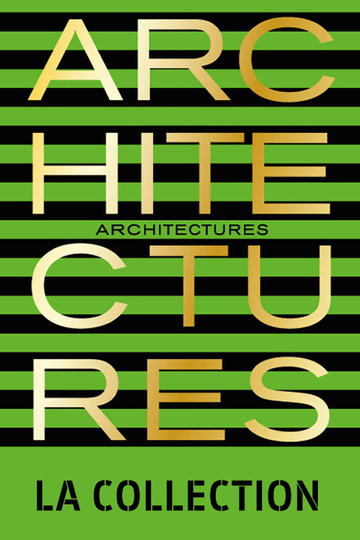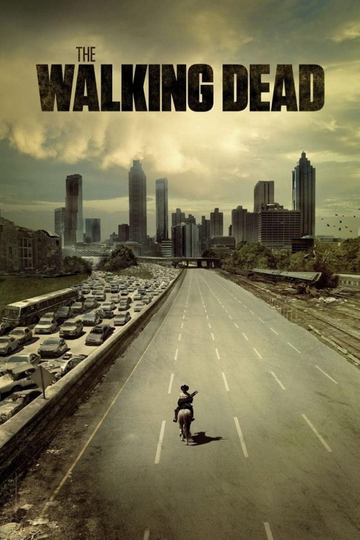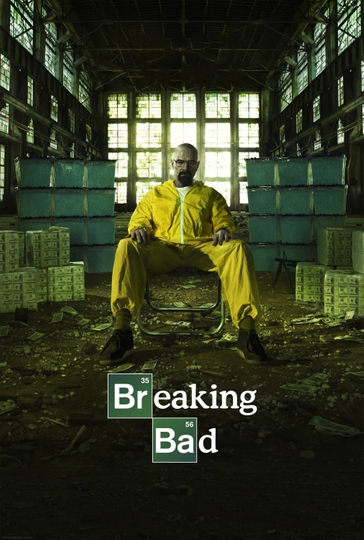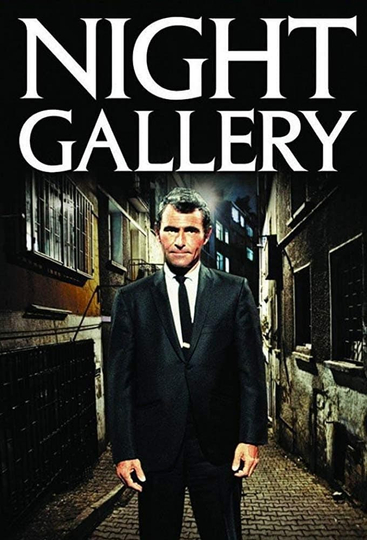Season 1 Episodes
1. The Villa Dall'Ava
Rem Koolhaas built a unique villa on the heights of Saint-Cloud.
2. Nemausus 1
In Nîmes, Jean Nouvel conceived a block of tenement houses reminiscent of a cruise liner. An architectural utopia that pokes fun at the truisms of council housing.
3. The Iron House
In late 19th century Brussels, the Art Nouveau movement was laying the foundations of a new concept in architecture, and Victor Horta was the movement's grand master. Of all his works, the Hotel van Eetvelde features the boldest display of his modernity.
4. Charlety, a Stadium in the City
Bruno and Henri Gaudin have broken with the classic design of a closed stadium, and created a bridge between Paris and its suburb. The Charlety Stadium's airy outline stands out in an otherwise densely urban area.
5. Pierrefonds, the Architect's Castle
Middle Aged castle rebuilt by Viollet Le Duc for the Emperor Napoleon III. A reconstruction that paradoxically opened the way for modern architecture.
6. The Vienna Savings Bank
At the turn of the last century, Otto Wagner designed one of the first 20th century modern office buildings, representing a radical break with the previous tradition in bank-architecture.
7. The Georges Pompidou Centre
A giant meccano-like structure designed by Richard Rogers and Renzo Piano, a museum-factory that has become one of the most notable landmarks of the historical Parisian architectural landscape.
8. Family Lodging in Guise
The philanthropist company boss Andre Godin built a workers' housing estate with a palatial air. Social housing is born.
9. A House in Bordeaux
Designed by the architect Rem Koolhaas for a couple whose husband became disabled following a road accident, the architect's plan for this ultra-modern house is shaped by the need to adapt to the husband's mode of travel.
10. The Dessau Bauhaus
Walter Gropius' main achievement is the buildings of the Bauhaus, built in 1926. His pioneering architecture saw the birth of one of the most innovative schools of art of the 20th century.
11. Satolas - TGV
An astonishing concrete and steel structure designed for an open field in the Lyon countryside. An astonishing feat undertaken by Calatrava, which sees trains race through at speeds of 190mph.
12. The Johnson Building
These famous office buildings were designed and built between 1936 and 1939 for the wax manufacturer Johnson, by one one of the 20th century's greatest architects Frank Lloyd Wright.
13. The Paris Fine Art School
In the heart of Paris, architect Duban's 'École des Beaux-Arts' provides its students with an architectural "temple" representing a 19th century style widely copied throughout the world.
14. The Siza School
The Portuguese architect Alvaro Siza built Porto's Faculty of Architecture, a mediation on space and light in a futuristic "agora". Alvaro was once a student and still teaches there today.
15. The Stone Thermal Baths
The Spa of Vals-les-Bains, designed by Peter Zumthor, redefines the very concept of public bathing, a mise en scène of water in all its aspects.
16. The Galleria Umberto I
Built in Naples, this is one of the last and largest covered passageways to be constructed in Europe, providing the swan song for a grand invention of 19th century architecture.
17. The Saint Pancras Station
In the 19th century in London, the Midland Company had Saint Pancras and a luxury hotel built. Engineer W.H. Barlow carried out a major feat, creating a 73 meter single-span hall, with no columns or pillars. As for architect Sir George Gilbert Scott, his Midland Grand Hotel was a neo-gothic manifesto.
18. The Wind Box
The Fort de France Education Authority is the only example of a contemporary architectural building in Martinique. It is also the only official building to be naturally ventilated by the trade winds. Christian Hauvette has created a totally open building, in which the boundaries between exterior and interior are blurred.
19. The Garnier Opera
The Garnier Opera by Charles Garnier This is Paris's most prestigious 19th century building, the pinnacle of the "Beaux Arts" style with its ornamented facade, transfigured by the excesses of a theatre-mad architect in the mid-1800s.
20. The Jewish Museum Berlin
The Jewish Museum in Berlin, by Daniel Libeskind, tackles the emptiness left by the extermination of Europe's Jews during the Second World War. His response is an architecture of absence.
21. The Convent of La Tourette
With the Convent of La Tourette, commissioned by the Dominicans of Lyons, Le Courbusier was charged with the task of creating this rural convent retreat. A reinvention of religious architecture, its rough concrete form houses one hundred sleeping rooms plus recreational spaces.
22. The Auditorium Building in Chicago
At the end of the 19th century, Louis Henry Sullivan, the father of American architecture, built the world's largest opera house, a "democratic" auditorium which was revolutionary in its very conception.
23. The Municipal Center of Säynätsalo
Built in 1952 by Alvaar Alto, this town hall building lies in the heart of a rugged landscape in Finland. It represents a humanist masterpiece, and pays modern homage to the Ideal City of the Italian Renaissance.
24. The Casa Milá
A block of flats in Barcelona, the Casa Milà is an extraordinarily sculpted work created by the great Spanish architect Antoni Gaudi. The Art Nouveau apartments are expressionistic, fantastic, organic forms with undulating facades and roof lines.
25. The Glass House
In 1928, Pierre Chareau built the poetic and remarkable Maison de Verre, one of the unique buildings of the 20th century. Inserted into an existing building, the views dissolve through semi-transparent materials, juxtaposing metal and glass, almost taking it into the realms of Surrealism.
26. The Abbey Church of Saint Foy at Conques
Built in 1050, the Abbey is one of the foremost pilgrim churches of the Christian world. Rational, svelte and light-filled Romanesque architecture that flies in the face of cliches.
27. The Guggenheim Museum in Bilbao
Known for his strange and deconstructed forms, Frank Gehry designed this monumental, but chaotic and abstract-looking sculpture in 1967. Covered in titanium, the curves on the building have been designed to appear random in order to catch the light.
28. The Royal Saltworks of Arc-et-Senans
The visionary architect Claude Nicolas Ledoux, one of the earliest exponents of French Neoclassical design, built a monumental factory for the king of France at the end of the 18th century. It is pragmatic and utopian, an aesthetic revolution.
29. Jean Prouvé's House
In 1953, while going through his worst life-crisis, French designer Jean Prouvé built "his" house. Designed in haste, it embodies his most innovative ideas.
30. The Multimedia Library of Sendai
A glass cube, built in 2001 by Toyo Ito, this library provides an example of immaterial and evanescent architecture. The multimedia library is located on a tree-lined avenue in Sendai, Japan. Its transparent facade allows for the revelation of diverse activities that occur within the building.
31. The Alhambra, Grenade
Worried that their dynasty would disappear, the Nasrid sultans built this Red Castle in a strategic location over the city of Granada, ensuring that it became a paradise lost, dedicated to art, poetry and beauty.
32. Phaeno, Building as Landscape
The sculptural power of the science center in Wolfsberg, Germany, in which the plan is a landscape - the landscape of Zaha Hadid's experience. The building is the realization of an imaginative world that we know vividly through twenty years of abstract images. It permits us to experience space in ways that never seemed possible before.
33. The House of Sugimoto
Built in Kyoto in 1743, this traditional Japanese architectural masterpiece portrays a different understanding of architecture and building. It is a typical 'machiya' (Kyoto traditional townhouse) and was one of the largest built during the Meiji period.
34. The Reception and Congress Building in Rome
In the most ambitious of the Mussolini regime's buildings, the leader of Italy's modern movement Adalberto Libera attempted the impossible combination of fascism with modernity. It reflects Libera's great ability to design ambiguously in a space, metaphysical language that sits on a knife-edge between modernism and neo-classicism.
35. The Yoyogo Olympic Gymnasiums
For the 1964 summer Olympic Games in Tokyo, Kenzo Tange designed two concrete gymnasiums which evoke a sense of movement. Famous for their suspension roof design, they are regarded by many as being among the most beautiful buildings of the 20th century.
36. The Villa Barbaro
By inventing the villa, a new type of housing, in 1550, Palladio sought to combine aesthetics with utility. This rigorous and innovative approach was to have a lasting influence on Western architecture.
37. The Royal Mosque at Isfahan
In 1598, King Abbas planned an immense urban project. His royal mosque captured his unprecedented wealth, an art of living, the king's power, and the talent of the architect Ali Akbar Esfahani.
38. The Menier Chocolate Factory
The Menier factory at Noisiel, outside Paris, was the largest chocolate factory in the world between 1870 and 1914. Throughout its three successive states, it tells the story of a veritable laboratory of industrial architecture in the second half of the 19th century.
39. The Pyramid of Pharoah Djoser at Saqqara
The Djoser pyramid, the work of legendary architect Imhotep, is the oldest in Egypt, and bears witness to the first steps of architecture as a scholarly pursuit. It was a revolution when built in 3000 BCE, born out of a desire to perpetuate tradition.
40. The German Pavilion in Barcelona
How and why did this minimalist structure end up embodying 20th century modernity? Between rigor and free form, Ludwig Mies van der Rohe's first masterpiece is a poetic work of spatial flow and intervals.
41. The SAS Royal Hotel
The SAS Royal Hotel tower marked Denmark's entry into post-war modernity. It is a major work that combines functionalism, simplicity and elegance, and in which everything, from the ashtrays to the buildings volumes, were created and designed by Arne Jacobsen.
42. Roissy 1
Opened in 1974, Roissy 1 was the first time architecture had entered the realm of airport construction. The building is the work of Paul Andreu, who was 29 years old at the time. It was his first building and the start of a long series of constructions, which would eventually make him one of the greatest 20th century airport architects.
43. The Maisons Castle
Although its posterity has now rendered its image commonplace, the Maisons Laffitte Chateau revolutionized French architecture. It is the masterpiece of the brilliant architect Francois Mansart.
44. The Luxembourg Philharmonic
The elliptical shaped Philharmonic, with its filter of white columns and colorful cliffs, houses the Grand Auditorium in the manner of a jewel in its display case. It is one of the most beautiful building from architect Christian de Portzamparc.
45. VitraHaus
In 2006, the company Vitra asked the "Herzog & de Meuron" agency to create a building for it's "Home" collection. The showroom consists of a pile of 12 houses, slotted together to produce surprising spaces.
46. The Igualada Cemetery
47. The Citadel de Lille
Vauban's "Queen of the citadels" was the model for military construction all over France. Built between 1668 and 1671, its exacting and simple design has made it a source of inspiration for major contemporary architects.
48. The Sainte-Geneviève Library
Breaking away from the 19th century neoclassical trend, Henri Labrouste erected a powerful public building in which stone featured along side a material that was used prominently and glorified for the first time - iron. A major milestone on the path to modern architecture.
49. The Church of Notre-Dame du Raincy
In a country ruined by World War I, Auguste Perret took up the challenge of building a church. In concrete. It was a shunned material, used hitherto exclusively in industrial construction. This "Holy Chapel of Concrete" revolutionized architectural vocabulary.
50. Ewha, the Seoul Hidden University
With this building, Dominique Perrault continues a concept that is dear to him, the absence of architecture. The urban dimension and the way the surrounding land is organized prevail over the construction. The landscape supplants the architecture.
51. The Rolex Learning Center
Poised on the shore of Lake Geneva, a wave of cement and glass has inspired many metaphors, from a slice of Emmental cheese to a piece of molecular fabric. The building, a space dedicated to knowledge, resembles nothing else before it.
52. The National Dance Center
The mutation of a concrete mastodon, the Pantin Administrative Center (1969) into the French National Dance Center (2004)... Or the successful meeting of Brutus and ballerinas. An architectural overhaul that necessarily owes its success to the monumental strength of the original building.
53. The Cologne Cathedral
Started in 1247, the Cologne Cathedral was completed in 1880 after a 300 year break in the work carried out on it. The Cathedral, which embodies the unity of Germany, is both a Gothic archetype and one of the most magnificent buildings completed during the 19th century.
54. The Citadel of Leisure, the Pompeia Social Service Center
In the Palmeiras district of São Paulo, early 20th century former factory workshops are aligned with strange blocks of cement that stand tall, facing the city. Could the "Citadel of Leisure" be a major work of "Architecture Povera"?
55. The Hotels de Soubise and de Rohan
From 1705 to 1752, the house of the Princes of Soubise was the setting for wild ambition and dreams of grandeur, with the dual purpose of transforming and renaming the Hotel de Guise for the Prince's heir, and of building a second mansion for his fifth son, the Prince Bishop of Strasbourg.
56. The French Communist Party Headquarters
A mysterious white dome and an undulating glass facade, the headquarters of the French Communist Party, built between 1965 and 1980, by Oscar Niemeyer. A fine example of the curtain wall designed by Jean Prouve, an extraordinary Central Committee room under the dome, and some of the finest Parisian architecture of the period.
57. The Unal House
Designed by Claude Hausermann-Costy, and built by Joel Unal between 1972 and 2008, it's a bubble house without a single right angle. The technique used was the application by hand of a layer concrete, without forms, on top of a metal frame. The house is part of a movement known as "sculpted architecture".
58. The Van Nelle Factory in Rotterdam
A cross between Taylorism and Bauhaus, the Van Nelle factory at Rotterdam was built between 1926 and 1931. Designed by the architects Jan Brickman and Leendert Van der Vlugt, the factory is the most important and the most accomplished example of industrial architecture in the modern movement.
59. The Glass Galleon
On the fringes of the Bois de Boulogne in Paris, a grand galleon with 12 glass sails, billowing in an imaginary wind, towers above the treetops. It is a new building, designed by Frank Gehry, dedicated to contemporary art that offers visitors an architectural tour.
60. Itimad-ud-Daulah, the Mughal Mausoleum
The mausoleum of Itimad-ud-Daulah, built of white marble encrusted with semi-precious stones, in Agra the capital of the Mughal Empire. Islamic funeral rites are strictly observed in a structure that combines representations of paradise.
61. The Home for All at Rikuzentakata
After Japan's 2011 tsunami, a group of architects led by Toyo Ito launched the "Home for All" project, providing community centers for the inhabitants of the devastated towns. Three architects, Su Fujimoto, Kumiko Inui and Akihisa Hirata, each built one of these homes in Rikuzentakata.
62. The Wa Shan Guesthouse
The Wa Shan, literally "Tile Mountain", is an astonishing guesthouse, built by Chinese architect Wang Shu, who pursues the aim of sustainable architecture. His experimental practice and his works, which blend modern and traditional building methods, earned him the Pritzker Prize in 2012.
63. The Glasgow School of Art
Built at the dawn of the 20th century by Charles Rennie Mackintosh, the Glasgow School of Art is a masterpiece that combines the constructive rationality, art-nouveau, subjectivism, obsessive attention to detail and a decorative fantasy. Its influence is without parallel in early 20th century architecture.
64. The Sante, a Prison in Paris
La Sante prison (1861-1867) is a unique and impressive work of architecture. At the cutting edge of reflections on imprisonment, it was at the time the ultimate "modern prison", the stone embodiment of 19th century penitentiary obsessions.
65. The Bamboo School of Bali
An astonishing structure in which three cones flow together into one roof that protects a school building made of bamboo. An ambitious program built only with an entirely renewable material.
66. Médiacité - a Designer Mall
Seen from the sky, a long stained-glass window structures the commercial center. At Médiacité, the experimental, provocative Israeli designer Ron Arad has set out to conquer architecture, putting his ideas into practice on a bigger scale and reinvigorating the often criticized genre of retail architecture.
67. The Phillips Exeter Academy Library
A masterpiece of geometry and of architectural precision, the library is one of Lous Kahn's last works. Louis Kahn reinvented library layouts by placing readers close to daylight on the periphery of the building, and by creating a vast central atrium.















































